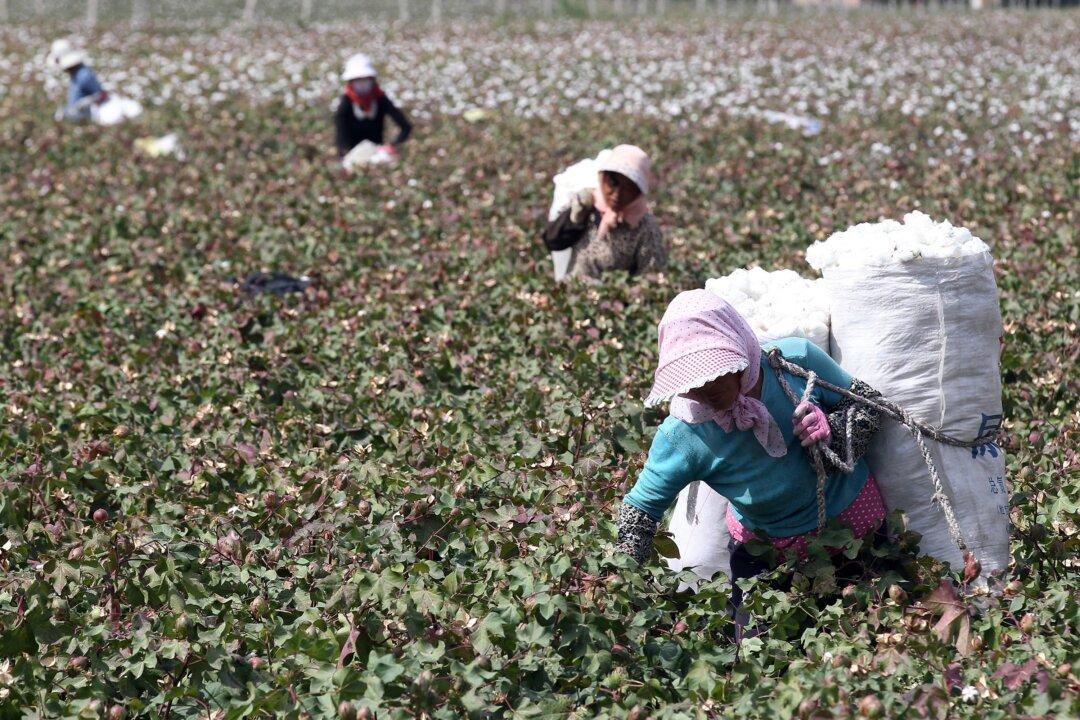The Trump administration has banned imports of cotton, hair products, clothing, and other products made with forced labor from China’s Xinjiang region, where the regime has detained more than 1 million Uyghur Muslims and other Muslim minorities.
“These actions send a clear message to the PRC [People’s Republic of China] that it is time to end its practice of state-sponsored forced labor and to respect the human rights of all people,” U.S. Secretary of State Mike Pompeo said in a statement.
The orders come as the United States takes stronger action against the Chinese Communist Party (CCP) over its repression in Xinjiang, where internment camps serve as part of the regime’s purported crackdown on “extremism.”
Survivors of the internment camps have recounted being tortured, raped, and forced to undergo political indoctrination while detained. Xinjiang residents are also subject to an expansive system of surveillance through a network of AI-enhanced security cameras, checkpoints, and the collection of biometric data.
The CBP orders apply to cotton produced and processed by Xinjiang Junggar Cotton and Linen Co. in Xinjiang; apparel produced by Yili Zhuowan Garment Manufacturing Co. and Baoding LYSZD Trade and Business Co. in Xinjiang; hair products made in the Lop County Hair Product Industrial Park in Xinjiang; all products made with labor from the Lop County No. 4 Vocational Skills Education and Training Center in Xinjiang; and computer parts made by Hefei Bitland Information Technology Co. in Anhui Province.
“The Trump Administration will not stand idly by and allow foreign companies to subject vulnerable workers to forced labor while harming American businesses that respect human rights and the rule of law,” acting CBP Commissioner Mark A. Morgan said in a statement.





